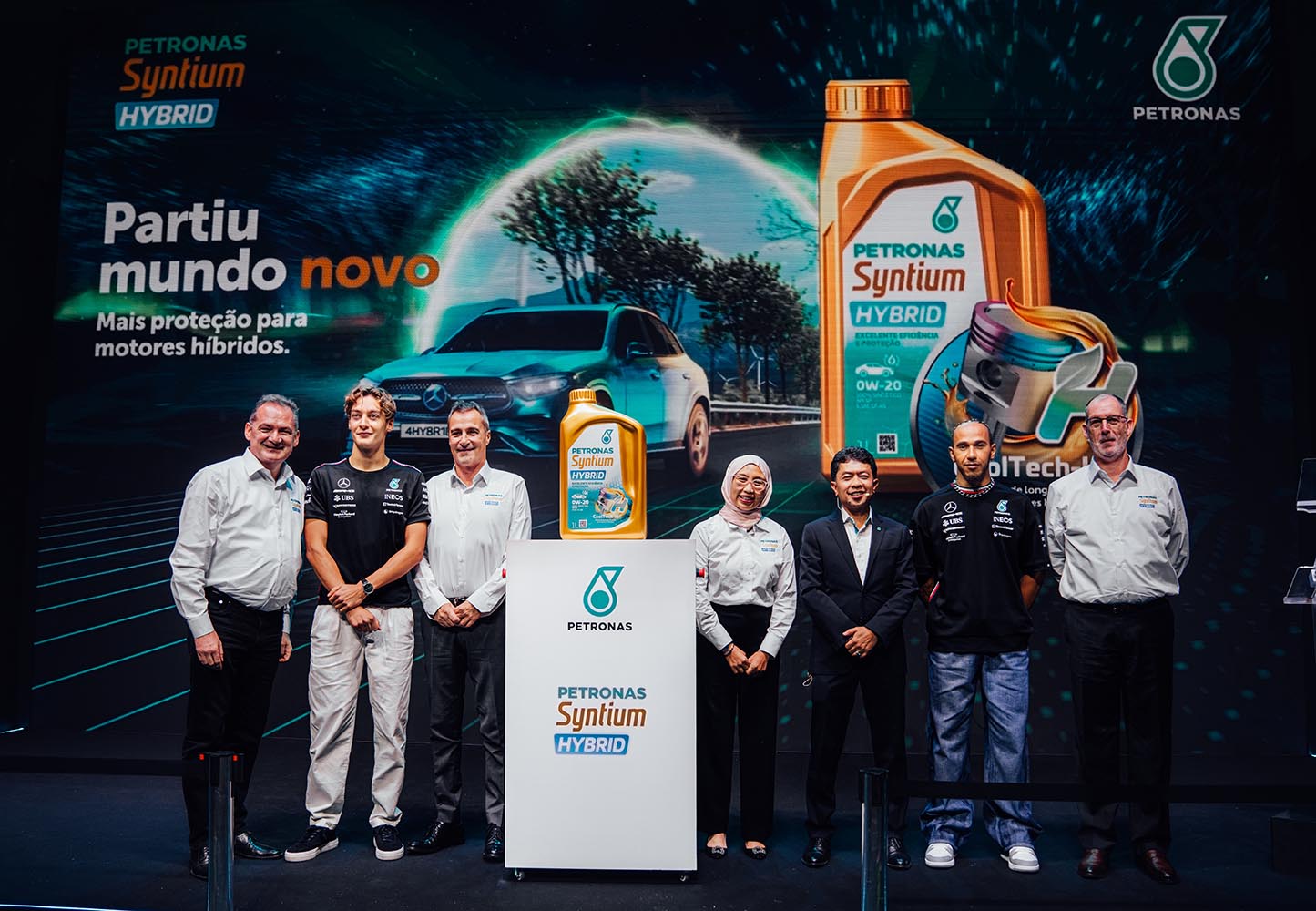
PETRONAS unveils Syntium Hybrid range for growing hybrid market
PETRONAS Lubricants International (PLI) announced the global launch of its comprehensive PETRONAS Syntium Hybrid product line, tailored for the burgeoning hybrid engine market in São Paulo, Brazil. This initiative marks a significant step in PLI’s commitment to innovation and sustainability in automotive lubricants.
PLI first introduced a product dedicated to hybrid engines in 2019. The company enhanced its range in 2021 with CoolTech+ technology, and the latest development is a complete portfolio specifically for hybrid vehicles, which was revealed in China and now in Brazil.
Ahmad Adly Alias, vice president of Refining, Marketing & Trading at PETRONAS and chairman of PETRONAS Lubricants International, stated, “The Syntium Hybrid range embodies our dedication to forward-thinking and eco-friendly solutions. Our team has meticulously developed a product to address the unique challenges of hybrid vehicles, ensuring engine protection even under frequent start-stop conditions and low temperatures.”
“PETRONAS’s advancements mirror the sustainability efforts we champion in Formula One. The Syntium Hybrid line is a leap towards integrating hybrid technology into daily life, reflecting our shared vision for sustainable high-performance vehicles,” said Lewis Hamilton, Mercedes-AMG PETRONAS Formula One Team driver.
Hybrid vehicles combine an internal combustion engine (ICE) with an electric motor to optimise efficiency and performance while minimising fuel consumption and emissions. The frequent switching between the ICE and the electric motor, particularly in urban settings, poses unique challenges, such as increased engine wear and oil degradation.
PETRONAS Syntium Hybrid with CoolTech-H™ technology is engineered to combat these challenges, offering superior oxidation resistance and maintaining stable performance throughout the engine’s service interval. It ensures that hybrid engines operate efficiently and are protected against wear, even in the face of constant start-stop operations and lower operating temperatures.
.gif)












